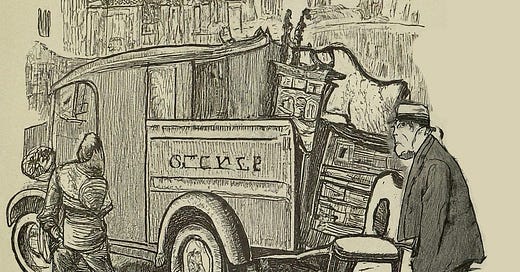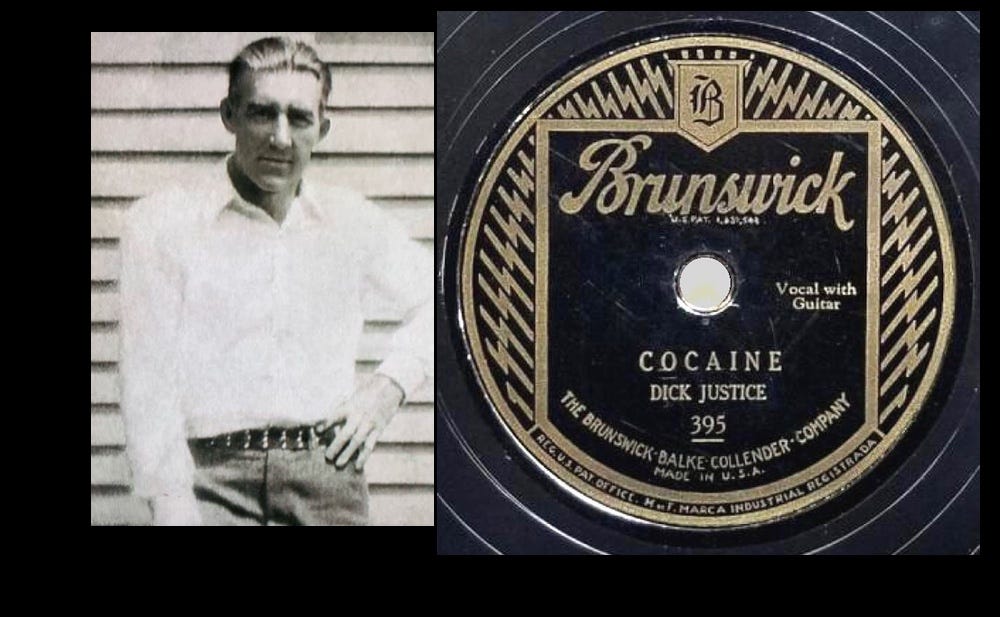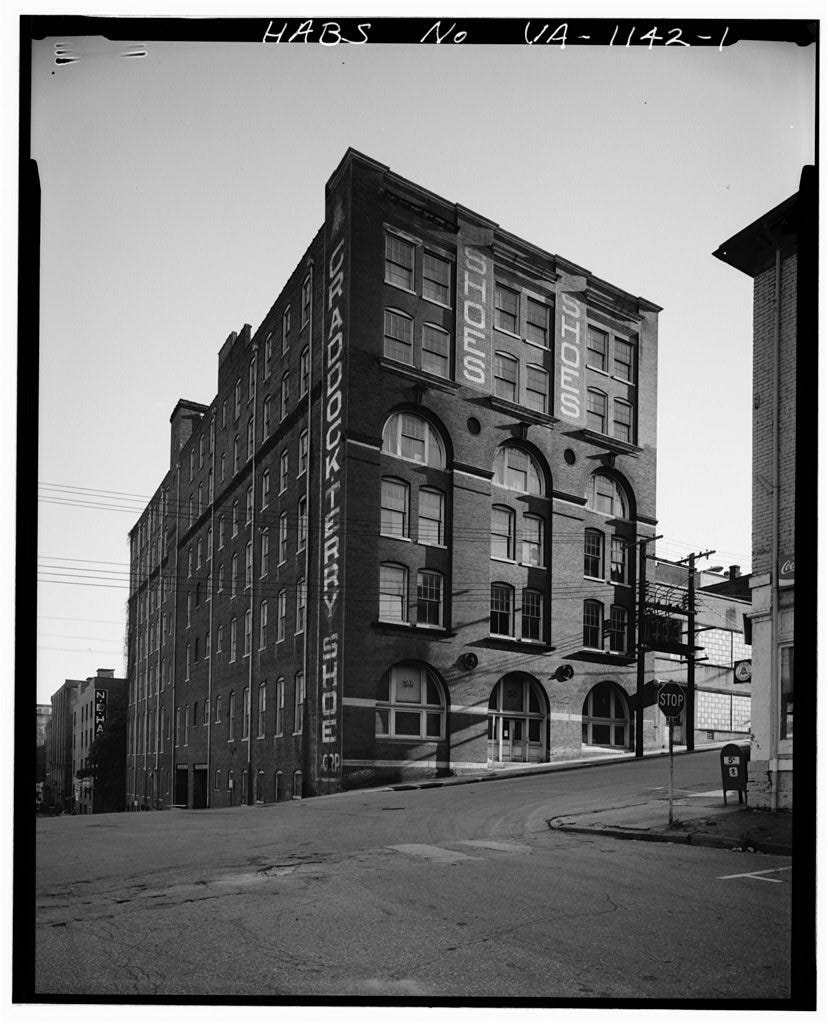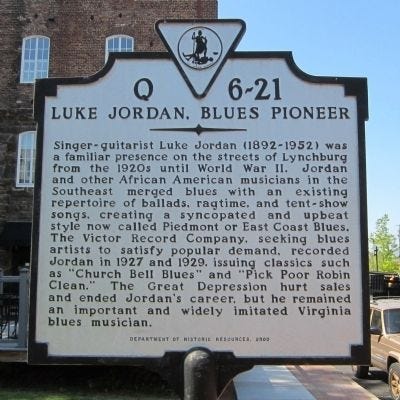A signature tune from the late David Peyton — the song he called “Furniture Man” — entered the Floodisphere 45 years ago as a wild and crazy sing-along for the folks who attended the latter years of the Bowen Bashes.
In fact, the song helped to make memories at the very last of those semiannual music parties at which The Flood was born.
Here, from that evening (Sept. 19, 1981), the rocking rendition by Dave, accompanied by his original Flood band mates, Charlie Bowen and Roger Samples, Joe Dobbs and Bill Hoke is The Flood’s first recording of the song.
Still with us two decades later, the song — which Dave knew had strong ties to his beloved Mountain State — also was featured on The Flood’s first studio album in 2001, which you can hear it for free online in our Radio Floodango music streaming service. Click here to give the album a spin.
We Started with Dick Justice …
We learned this song from a 1929 recording by a West Virginia original, Dick Justice, a Logan County coal miner and a white blues singer who was heavily influenced by black musicians, especially Luke Jordan who was living at the same time in the hills of neighboring Virginia.
Peyton found this great old tune on an anthology of little known recordings by West Virginians in the early 20th Century.
Dick's single recording session took place at Brunswick’s Chicago studio May 20 and 21, 1929. In addition to his six solo released numbers (plus two unreleased vocal songs), he also furnished guitar backup for Clendenin, WV, fiddler Reese Jarvis, who placed four traditional tunes on disc. (Ironically, the two West Virginians first met at the Chicago studio and never saw each other again afterward.)
One of Justice’s six sides recorded that spring was released the following April as "Cocaine,” though that isn’t the name Dick usually gave it.
In his web newsletter Old Friends: A Songobiography, Elijah Wald quotes one of Justice’s old buddies as saying Dick “could get on the piano and play blues like crazy, you know. He used to do a song called ‘Cocaine,’ but it had a verse in it about the furniture man, so he liked to the call it ‘The Furniture Man’. And he would just do it like a comedy skit, and just crack everybody up.”
After his Chicago recording adventure, Justice resumed digging coal in the Eagle Mines in Logan County, where he died in 1962 at age 59.
… But We Need to Give Luke Jordan His Props
We wrote above that Justice was “heavily influenced” by black blues singers. Yeah, well, that’s putting it mildly. If you listen to Luke Jordan’s 1927 “Cocaine Blues” for Victor, it’s clear that Justice copied — verse for verse — Jordan’s work for his own Brunswick recording two years later.
Some believe Jordan was also a West Virginian, born in Bluefield, WV, in 1892. However, the birthplace of the bluesman is something of a dispute. (Some folks will tell you he was from Virginia, perhaps Lynchburg or Appomattox County.)
We do know that at the time of his World War I draft registration on June 5, 1917, the 25-year-old Jordan was living in Bluefield, working as a delivery man and janitor. Later he served as a private in the army’s 7th Development Battalion.
His gravestone — erected by the military following his death in 1952 at age 60 — lists West Virginia as his home.
Recordings and Afterward
Jordan’s brief recording career — he waxxed 12 sides — started at age 35, when he was brought to Charlotte, NC, by Victor in 1927. The several records Jordan made sold moderately well, and Victor took him to New York in 1929 for two more sessions.
The Depression ended his recording career, and Jordan eventually drifted to Lynchburg, where he was often found playing on the street outside the Craddock Terry Shoe Co. building. By the 1940s, Jordan had lost his voice and had stopped singing.
Jordan is buried in Lynchburg’s Forest Hill Cemetery. Today, through the help of the James River Blues Society, he is honored with a Virginia historical highway marker erected in 2000 on the corner of Lynchburg’s Jefferson and Horseford streets, near an old apartment where he stayed.
In Flood Lore
It probably isn’t surprising for a song that has been with us so long to have deep roots in Flood lore.
At a 2010 jam session at the Bowen House, for instance, Dave, Joe, Sam and Charlie stopped between tunes to share funny stories about the far-reaching impact of “Furniture Man.” Click the button below to hear them:
And while we’re at it, here from13 years earlier is another bit of conversation about the song, this one during a 1997 Flood visit to Joe’s “Music from the Mountains” radio show on West Virginia Public Radio:

























Share this post